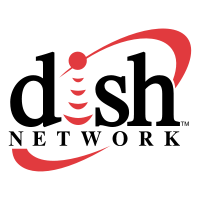As you may have heard, Sprint Nextel is shuttering a substantial number of its legacy Nextel iDEN tower sites. These sites are no longer necessary in light of Sprint decommissioning of the Nextel iDEN service and combining technologies through its grand Network Vision Project (for more on Network Vision, click here).
For impacted Nextel tower site landlords, lease terminations translate to the loss of anticipated lease income. This is why I tell my landlord-clients that they should always view most wireless leases as being enforceable for only months on the tenant side, but for decades on the landlord side.
Getting back to Nextel’s current round of terminations, to add insult to injury Nextel has employed third-party vendors to call and ‘convince’ landlords why, on the way out, they should execute a novel “Lease Termination Agreement and General Release” document. I first heard about this from my peer, friend and trusted colleague, Mike Ritter, Esq. of TowerSeekers, a firm specializing in serving wireless landlords in the religious and non-profit segment.
So it seems that Nextel, when terminating a lease, would prefer to save lots of money by not removing most of the equipment, wiring, conduits, cables, and other things it installs. Removal of these items is typically required by most wireless leases, as is returning the leasehold to the landlord in the same basic condition that existing just prior to the lease. Nextel’s preference now seems to be to abandon the equipment in place and transfer title of the abandoned equipment, with no warranties whatsoever, to the site landlord. With the abandonment goes all of the legal liabilities, as well, which may include liabilities imposed by the local governments on Nextel, but transferred by this agreement to the landlord.
‘Just sign right here on the dotted line and YOU get to take on all of OUR discarded stuff and legal risks, and you save us a boat-load of money, too!‘ is just one way to think about this proposed deal. Such a deal!
What’s even better is that BlackDot suggests in writing–but does not guaranteey–that they can find a replacement carrier quickly because these decommissioned sites will be “plug and play” solutions for other carriers…IF…the landlord will give up a 25% commission for the life of the revenue stream BlackDot can negotiate. Such a better deal!
‘Plug and play?’ Huh? I’m a radio frequency engineer as well as an attorney. I don’t think much of the pitch is remotely believable. By the way, if you’re interested in this deal, give me a call: I have a famous New York bridge for sale that’s priced for quick sale.
Take a look at a redacted copy of the Agreement document, here’s one. If you’re half-a-lawyer, you’ll see why this deal is no deal at all.
If you are a Nextel landlord and you’ve received a notice of termination (as have some of my clients), go back and pull out your lease documents, including amendments. Look at the termination terms and restoration terms. (They may be in several places in the lease.)
Even if you don’t get the follow-up sales pitch call to do the exit agreement, do talk with your attorney. If you don’t have one, I happen to know of some good ones! Just call me on 310-405-7333, or give Mike a call on (760) 917-1123.
Jonathan









